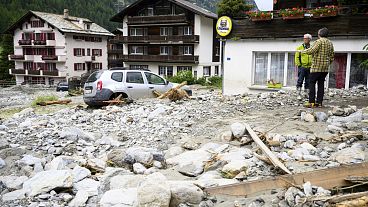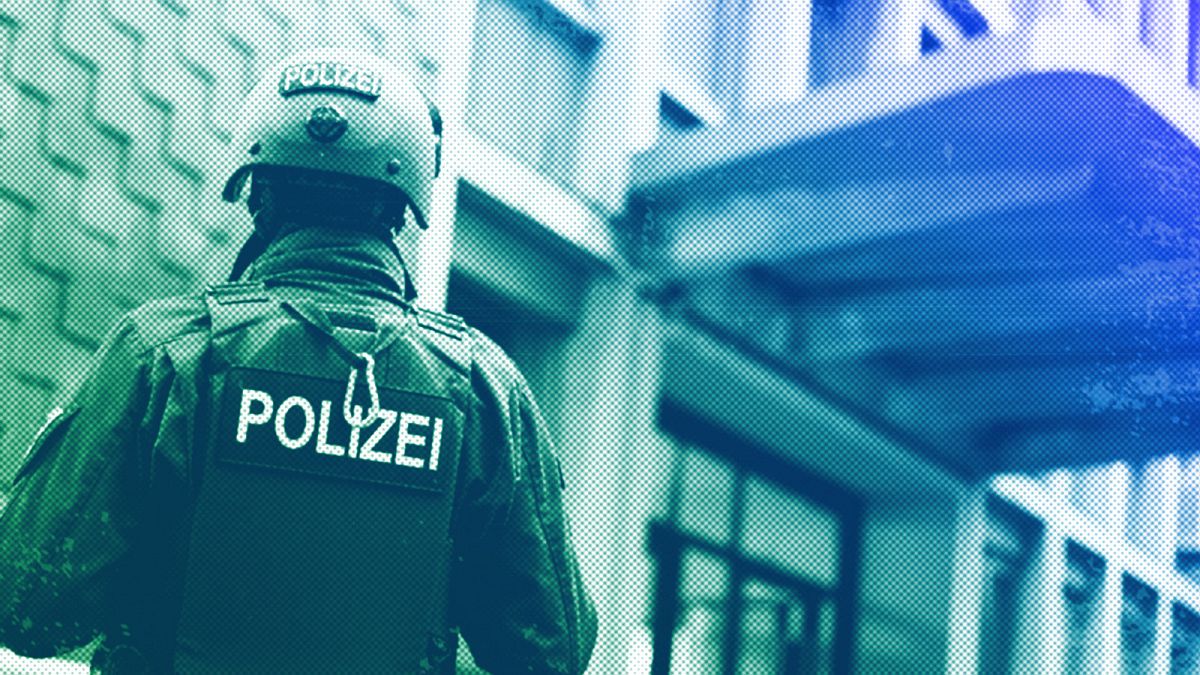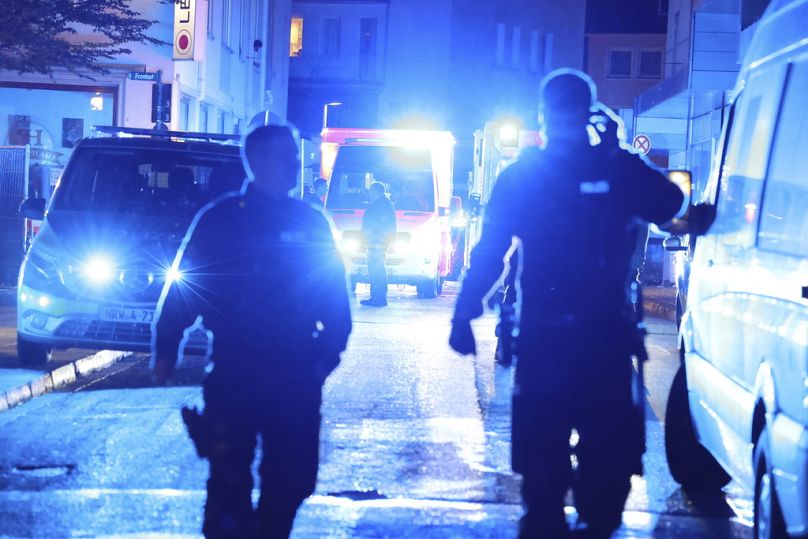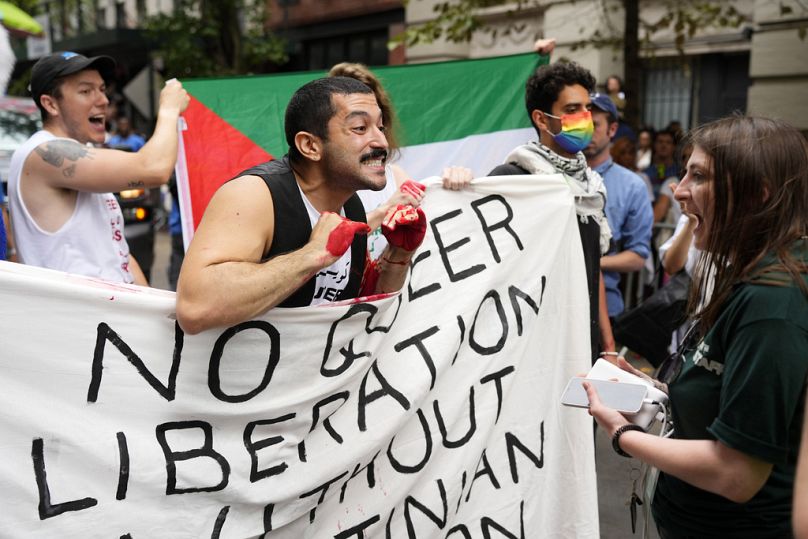Just as in the fight against right-wing extremism, clear lines must be drawn with Islamists, not just concerning the question of violence but regarding their stance on democratic core values, Gülden Hennemann writes.
Friday evening: a knife attack at the town festival in Solingen. Saturday morning: an arson attack on a synagogue in southern France. Sunday morning: the beginning of the long-anticipated major offensive by Hezbollah against Israel.
It is a sad weekend marked by Islamism and Islamist hatred. What all three events have in common: Islamist-inspired hatred against liberal democratic values and against Israel.
Given the increasing far-right extremist threat, the focus of politics has recently been on efforts to combat right-wing extremism.
Civil society has also loudly demonstrated its determination to fight racism, hostility towards people, and ethnic nationalism through countless demonstrations and various actions (from concerts to social media campaigns).
At the same time, there has been a noticeable silence from politics and civil society on the topic of Islamism.
On the contrary, many scientists, experts, authors, or journalists deliberately avoid the topic of Islamism out of fear because the public pressure on social media or the threats against themselves, friends or family are almost unbearable.
Especially since the terrorist attack by Hamas and its allied Islamist groups on 7 October of last year, any statement about Islamism, Israel, and Palestine feels like walking through a minefield.
Given the years of unchanged Islamist threat, however, this silence is the worst option imaginable. Because it either suggests approval or is a sign of cowardice. Both are existential threats to liberal democracies.
It is even more important that we finally address Islamism and its consequences, not just legally and criminally, because the world has been a different place since 7 October.
Decades of hatred
Even though investigations in Solingen are still ongoing and the exact background of the crime is unclear, many facts point to an Islamist-motivated terrorist attack.
The official media outlet of the so-called Islamic State (IS) terrorist militia has already claimed responsibility for the attack, presenting it as "revenge for Muslims in Palestine and elsewhere".
A look at the ideological history of Islamism shows that hatred of Israel and Jews, combined with the rejection of democratic values and liberal lifestyles, are core elements of Islamist ideology.
Since the last century, Islamists have systematically spread these ideas. First and foremost, through the writings and works of Sayyid Qutb (1906-1966), the chief ideologue of the Muslim Brotherhood and founder of modern Islamism in the 19th century, which is still referenced today for radicalisation purposes.
His essay "Our Battle with the Jews" has had a lasting influence on Islamist hatred of Jews and Israel, also because he refers to religious sources and traditions, thus obtaining the supposedly religious justification for this hatred.
Not to be forgotten: Abdullah Azzam (1941-1989), himself a Palestinian and the ideological and organisational mastermind of Al-Qaeda, explicitly called for the use of violence as a means of defending Muslim lands worldwide, particularly in Palestine against Israel.
And finally, there was also Yusuf al-Qaradawi (1926-2022), who not only promoted the emergence of a fundamentalism-oriented Muslim generation — especially in Europe — but was also one of the most prominent supporters of Hamas and explicitly advocated for the use of violence by Palestinians, including through suicide attacks.
However, since 7 October, there has been little discussion about these core elements of Islamism and Islamist terrorism.
And this, even though this terrorist attack by Hamas & Co has the potential not only to reorder the Near and Middle East but also to trigger a new wave of Islamist radicalisation in Europe.
Instead, political circles claim that Islamism and Islamist terrorism only arrived in Europe with the refugee movement in 2015.
Extremism hiding behind democratic laws
Even though Muslim antisemitism has increasingly become a problem in the wake of the refugee movements since 2015 and, combined with other psychosocial factors, provides fertile ground for Islamist radicalisation, this should not obscure the fact that Islamists have been systematically building their structures, expanding their networks, and increasing their influence in Europe, especially in the educational, social, and socio-political spheres, since the 1970s and especially since the 1980s.
We have thus had a growing European Islamism for decades, which is nourished by Islamist groups and movements — especially the Muslim Brotherhood — through anti-democratic, antisemitic, and anti-Western narratives. Islamist organisations are often shielded by the freedom of expression and religion guaranteed by democratic laws.
And as long as they do not cross the boundaries of criminal law, they can continue to organise and network undisturbed, sometimes reaching the highest political levels.
They are often still consulted as partners and advisors on issues of integration or combating terrorism, partly because they publicly oppose violence in the name of religion.
More than that: Islamist groups, such as those ideologically aligned with the Muslim Brotherhood, are still financially supported in many European countries and are considered legitimate representatives of Muslims on political and social levels.
Romantic reductionism legitimising crimes
In the context of the current Israel-Palestine conflict, the consequences of this Islamist networking are particularly evident.
It is organisations like the Palestinian Community in Germany (PGD) or the Samidoun network (Solidarity Network for Palestinian Prisoners), which is banned in Germany but still active across Europe, that claim to represent the interests of Palestinians but at their core spread hatred of Israel and Jews, thus aiding Islamist groups like Hamas.
It is these and similar organisations that aim to strongly emotionalise European societies, particularly to influence the public discourse in their own anti-Israel and Islamist interests and thus affect political decisions regarding Israel.
They receive public, political, and societal support, especially from the left spectrum. Thus, it can be observed how students, feminists, and LGBTQ+ activists, who are otherwise considered enlightened, have been used for months to legitimise Islamist-motivated rapes, killings, massacres, and abductions by remaining silent about these atrocities of 7 October, while simultaneously reducing the Islamist terrorism of Hamas & Co almost romantically to a form of self-defence against the alleged aggressor Israel.
That people who have been advocating for women's and LGBTQ+ rights for years and decades are now aligning with those who, out of Islamist conviction, is precisely against these rights and support the Islamist Hamas in Gaza is, therefore, a betrayal beyond comparison.
Particularly shocking is that these circles do not realise how they are legitimising Hamas & Co as supposedly rightful representatives of the Palestinians, while women, homosexuals, and dissidents have been oppressed and persecuted since Hamas took power in Gaza.
It is precisely these developments of recent months that highlight one thing: criticism of political developments in Israel, such as settlement policies or pro-Palestinian demonstrations, are important and legitimate.
However, it is dangerous if one becomes the mouthpiece of Islamists in the process and denies Israel its right to exist. This not only legitimises Islamist terrorism but also endangers the fundamental principles of democracy.
Don't give the extremists the satisfaction of silencing you
If we are to effectively combat a further rise of European Islamism and Islamist terrorism in the future, we must not only focus on legal and security measures but also finally address the ideological connections and thus expose Islamist narratives.
Just as in the fight against right-wing extremism, clear lines must be drawn with Islamists, not just concerning the question of violence but regarding their stance on democratic core values.
It is crucial that, on the one hand, the ability to think critically is more strongly promoted so that people can recognise Islamist propaganda and misinformation as such and that, on the other hand, a culture of debate and discussion is enabled, in which the long-term dangers of Islamist ideology to democracies are openly addressed and, above all, communicated.
Silence is not an option because then the Islamists and their accomplices would have achieved their goal.
Gülden Hennemann is a political scientist and former employee of the Bavarian Office for the Protection of the Constitution. She currently heads the Central Coordination Office for Measures against Extremism (ZKE) in the Bavarian prison system and its Operational Unit for Combating Extremism (OpEEx).
At Euronews, we believe all views matter. Contact us at view@euronews.com to send pitches or submissions and be part of the conversation.















